A cosmological argument, in natural theology, is an argument which claims that the existence of God can be inferred from facts concerning causation, explanation, change, motion, contingency, dependency, or finitude with respect to the universe or some totality of objects. A cosmological argument can also sometimes be referred to as an argument from universal causation, an argument from first cause, the causal argument, or the prime mover argument. Whichever term is employed, there are two basic variants of the argument, each with subtle yet important distinctions: in esse (essentiality), and in fieri (becoming).

In metaphysics, ontology is the philosophical study of being. It investigates what types of entities exist, how they are grouped into categories, and how they are related to one another on the most fundamental level. Ontologists often try to determine what the categories or highest kinds are and how they form a system of categories that encompasses the classification of all entities. Commonly proposed categories include substances, properties, relations, states of affairs, and events. These categories are characterized by fundamental ontological concepts, including particularity and universality, abstractness and concreteness, or possibility and necessity. Of special interest is the concept of ontological dependence, which determines whether the entities of a category exist on the most fundamental level. Disagreements within ontology are often about whether entities belonging to a certain category exist and, if so, how they are related to other entities.
Process philosophy, also ontology of becoming, or processism, is an approach in philosophy that identifies processes, changes, or shifting relationships as the only real experience of everyday living. In opposition to the classical view of change as illusory or accidental, process philosophy posits transient occasions of change or becoming as the only fundamental things of the ordinary everyday real world.
Substance theory, or substance–attribute theory, is an ontological theory positing that objects are constituted each by a substance and properties borne by the substance but distinct from it. In this role, a substance can be referred to as a substratum or a thing-in-itself. Substances are particulars that are ontologically independent: they are able to exist all by themselves. Another defining feature often attributed to substances is their ability to undergo changes. Changes involve something existing before, during and after the change. They can be described in terms of a persisting substance gaining or losing properties. Attributes or properties, on the other hand, are entities that can be exemplified by substances. Properties characterize their bearers; they express what their bearer is like.

Scholasticism was a medieval school of philosophy that employed a critical organic method of philosophical analysis predicated upon the Aristotelian 10 Categories. Christian scholasticism emerged within the monastic schools that translated scholastic Judeo-Islamic philosophies, and thereby "rediscovered" the collected works of Aristotle. Endeavoring to harmonize his metaphysics and its account of a prime mover with the Latin Catholic dogmatic trinitarian theology, these monastic schools became the basis of the earliest European medieval universities, contributing to the development of modern science; scholasticism dominated education in Europe from about 1100 to 1700. The rise of scholasticism was closely associated with these schools that flourished in Italy, France, Portugal, Spain and England.
Essentialism is the view that objects have a set of attributes that are necessary to their identity. In early Western thought, Platonic idealism held that all things have such an "essence"—an "idea" or "form". In Categories, Aristotle similarly proposed that all objects have a substance that, as George Lakoff put it, "make the thing what it is, and without which it would be not that kind of thing". The contrary view—non-essentialism—denies the need to posit such an "essence". Essentialism has been controversial from its beginning. In the Parmenides dialogue, Plato depicts Socrates questioning the notion, suggesting that if we accept the idea that every beautiful thing or just action partakes of an essence to be beautiful or just, we must also accept the "existence of separate essences for hair, mud, and dirt".
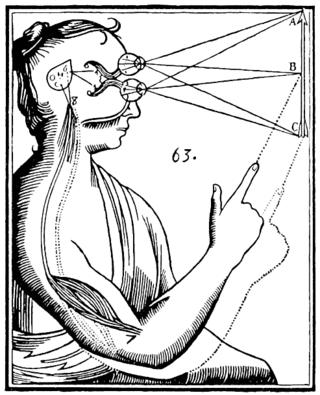
In the philosophy of mind, mind–body dualism denotes either the view that mental phenomena are non-physical, or that the mind and body are distinct and separable. Thus, it encompasses a set of views about the relationship between mind and matter, as well as between subject and object, and is contrasted with other positions, such as physicalism and enactivism, in the mind–body problem.

In classical theistic and monotheistic theology, the doctrine of Divine Simplicity says that God is simple.
Essence has various meanings and uses for different thinkers and in different contexts. It is used in philosophy and theology as a designation for the property or set of properties or attributes that make an entity the entity it is or, expressed negatively, without which it would lose its identity. Essence is contrasted with accident, which is a property or attribute the entity has accidentally or contingently, but upon which its identity does not depend.
An accident, in metaphysics and philosophy, is a property that the entity or substance has contingently, without which the substance can still retain its identity. An accident does not affect its essence, near many philosophers. It does not mean an "accident" as used in common speech, a chance incident, normally harmful. Examples of accidents are color, taste, movement, and stagnation. Accident is contrasted with essence: a designation for the property or set of properties that make an entity or substance what it fundamentally is, and which it has by necessity, and without which it loses its identity.

Thomism is the philosophical and theological school which arose as a legacy of the work and thought of Thomas Aquinas (1225–1274), the Dominican philosopher, theologian, and Doctor of the Church.
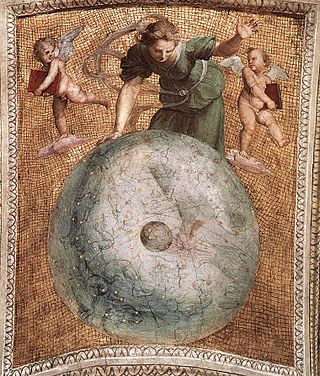
The unmoved mover or prime mover is a concept advanced by Aristotle as a primary cause or "mover" of all the motion in the universe. As is implicit in the name, the unmoved mover moves other things, but is not itself moved by any prior action. In Book 12 of his Metaphysics, Aristotle describes the unmoved mover as being perfectly beautiful, indivisible, and contemplating only the perfect contemplation: self-contemplation. He equates this concept also with the active intellect. This Aristotelian concept had its roots in cosmological speculations of the earliest Greek pre-Socratic philosophers and became highly influential and widely drawn upon in medieval philosophy and theology. St. Thomas Aquinas, for example, elaborated on the unmoved mover in the Quinque viae.
The transcendentals are "properties of being", nowadays commonly considered to be truth, unity (oneness), beauty, and goodness. The conceptual idea arose from medieval scholasticism, namely Aquinas but originated with Plato, Augustine, and Aristotle in the West. It is believed to be prefigured in the Bhagavadgita, an ancient Hindu classic, which illuminates the doctrines of Yoga. Viewed ontologically, the transcendentals are understood to be what is common to all beings/things/identities, and all things that exist can be judged, or appraised, or may be said to be or possess the innate qualities and characteristics which we consider or deem True, Beautiful and Good. From a cognitive and "first principles" horizon, going all the way back to Aristotle, they are the "first" concepts, since they cannot be logically or deductively traced back to "a prior metaphysics" preceding their Rational unfoldment and display.
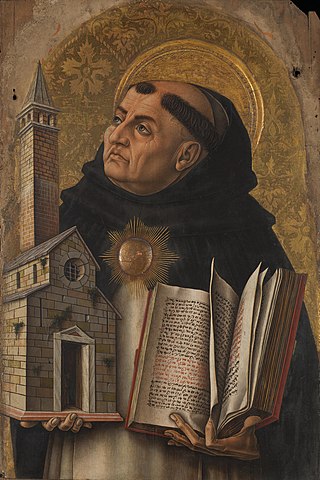
The Quinque viæ are five logical arguments for the existence of God summarized by the 13th-century Catholic philosopher and theologian Thomas Aquinas in his book Summa Theologica. They are:
- the argument from "first mover";
- the argument from universal causation;
- the argument from contingency;
- the argument from degree;
- the argument from final cause or ends.
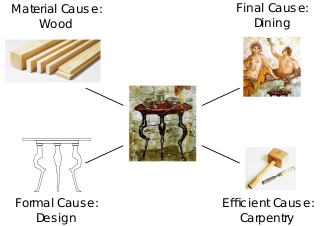
The four causes or four explanations are, in Aristotelian thought, four fundamental types of answer to the question "why?" in analysis of change or movement in nature: the material, the formal, the efficient, and the final. Aristotle wrote that "we do not have knowledge of a thing until we have grasped its why, that is to say, its cause." While there are cases in which classifying a "cause" is difficult, or in which "causes" might merge, Aristotle held that his four "causes" provided an analytical scheme of general applicability.

Neo-scholasticism is a revival and development of medieval scholasticism in Catholic theology and philosophy which began in the second half of the 19th century.
Metaphysics is the branch of philosophy that investigates principles of reality transcending those of any particular science. Cosmology and ontology are traditional branches of metaphysics. It is concerned with explaining the fundamental nature of being and the world. Someone who studies metaphysics can be called either a "metaphysician" or a "metaphysicist".
The following outline is provided as an overview of and topical guide to metaphysics:
Ousia is a philosophical and theological term, originally used in ancient Greek philosophy, then later in Christian theology. It was used by various ancient Greek philosophers, like Plato and Aristotle, as a primary designation for philosophical concepts of essence or substance. In contemporary philosophy, it is analogous to English concepts of nature, being, and ontic. In Christian theology, the concept of θεία ουσία is one of the most important doctrinal concepts, central to the development of trinitarian doctrine.
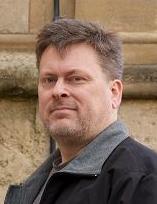
Edward Charles Feser is an American Catholic philosopher. He is an Associate Professor of Philosophy at Pasadena City College in Pasadena, California.








